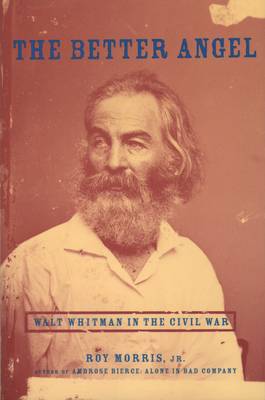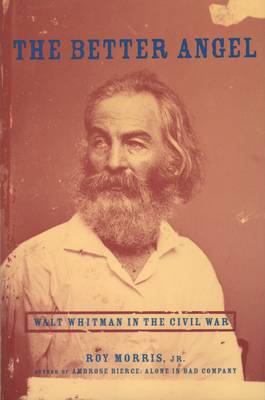
- Afhalen na 1 uur in een winkel met voorraad
- Gratis thuislevering in België vanaf € 30
- Ruim aanbod met 7 miljoen producten
- Afhalen na 1 uur in een winkel met voorraad
- Gratis thuislevering in België vanaf € 30
- Ruim aanbod met 7 miljoen producten
Zoeken
Omschrijving
For nearly three years, Walt Whitman immersed himself in the devastation of the Civil War, tending to thousands of wounded soldiers and recording his experiences with an immediacy and compassion unequaled in wartime literature anywhere in the world.
In The Better Angel, acclaimed biographer Roy Morris, Jr. gives us the fullest account of Whitman's profoundly transformative Civil War years and an historically invaluable examination of the Union's treatment of its sick and wounded. Whitman was mired in depression as the war began, subsisting on journalistic hackwork, his "great career" as a poet apparently stalled. But when news came that his brother George had been wounded at Fredericksburg, Whitman rushed south to find him. Deeply affected by his first view of the war's casualties, he began visiting the camp's wounded and found his calling for the duration of the war. Three years later, he emerged as the war's "most unlikely hero," a living symbol of American democratic ideals of sharing and brotherhood.
Brilliantly researched and beautifully written, The Better Angel explores a side of Whitman not fully examined before, one that greatly enriches our understanding of his later poetry. Moreover, it gives us a vivid and unforgettable portrait of the "other army"--the legions of sick and wounded soldiers who are usually left in the shadowy background of Civil War history--seen here through the unflinching eyes of America's greatest poet.
In The Better Angel, acclaimed biographer Roy Morris, Jr. gives us the fullest account of Whitman's profoundly transformative Civil War years and an historically invaluable examination of the Union's treatment of its sick and wounded. Whitman was mired in depression as the war began, subsisting on journalistic hackwork, his "great career" as a poet apparently stalled. But when news came that his brother George had been wounded at Fredericksburg, Whitman rushed south to find him. Deeply affected by his first view of the war's casualties, he began visiting the camp's wounded and found his calling for the duration of the war. Three years later, he emerged as the war's "most unlikely hero," a living symbol of American democratic ideals of sharing and brotherhood.
Brilliantly researched and beautifully written, The Better Angel explores a side of Whitman not fully examined before, one that greatly enriches our understanding of his later poetry. Moreover, it gives us a vivid and unforgettable portrait of the "other army"--the legions of sick and wounded soldiers who are usually left in the shadowy background of Civil War history--seen here through the unflinching eyes of America's greatest poet.
Specificaties
Betrokkenen
- Auteur(s):
- Uitgeverij:
Inhoud
- Aantal bladzijden:
- 288
- Taal:
- Engels
Eigenschappen
- Productcode (EAN):
- 9780195147094
- Verschijningsdatum:
- 20/12/2001
- Uitvoering:
- Paperback
- Formaat:
- Trade paperback (VS)
- Afmetingen:
- 130 mm x 206 mm
- Gewicht:
- 331 g

Alleen bij Standaard Boekhandel
+ 154 punten op je klantenkaart van Standaard Boekhandel
Beoordelingen
We publiceren alleen reviews die voldoen aan de voorwaarden voor reviews. Bekijk onze voorwaarden voor reviews.







